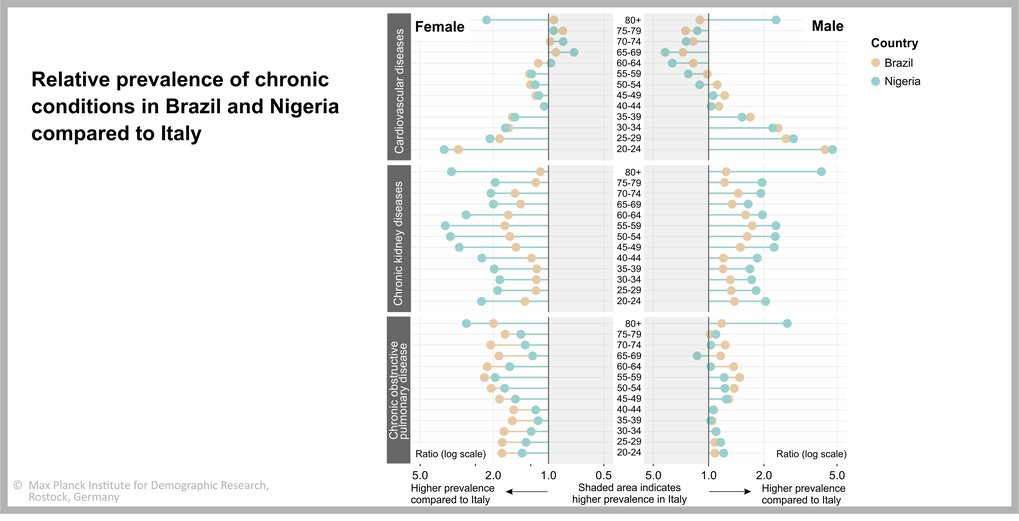Due to widespread pre-existing health conditions, Covid-19 may also affect young people in countries of the Global South.
Although populations in countries in the Global South are on average younger than in Europe, they might be more vulnerable to severe forms of COVID-19. One reason for this is the higher proportion of people at working age with pre-existing chronic conditions.
At almost every age within this population group, more people in Brazil and Nigeria suffer from pre-existing chronic conditions than in European countries, such as Italy. This increases their risk of a severe case of COVID-19. "We show that the prevalence of cardiovascular diseases, chronic obstructive pulmonary disease, and chronic kidney disease in Brazil and Nigeria is considerably higher relative to Italy," said Marília Nepomuceno. The researcher at the Max Planck Institute for Demographic Research (MPIDR) in Rostock, Germany, used data from the Global Burden of Disease Database for her analysis.
The results show that the proportion of people with cardiovascular diseases in their early 20s is more than two times higher in Brazil and Nigeria compared to Italy. For chronic kidney disease and chronic obstructive pulmonary disease, the prevalence in Brazil and Nigeria is also considerably greater relative to Italy. It is particularly higher for people over the age of 40. Among women, for instance, differences in prevalence can be up to four times higher in Nigeria than in Italy. These health disadvantages, which are common in the Global South, suggest that their working-age populations are far more vulnerable to severe forms of COVID-19 disease than that of Europe.
Together with her MPIDR colleagues Enrique Acosta and Diego Alburez-Gutierrez and an international team of researchers, Marília Nepomuceno published her study in the Proceedings of the National Academy of Sciences (PNAS). This article highlights the important role of several demographic factors for understanding the spread of the COVID-19 pandemic around the world, and particularly in the Global South.

Marília Nepomuceno and her colleagues argue that vulnerability to COVID-19 depends not only on age and sex, but also strongly depends on other factors, including health conditions, access to healthcare services, hygienic and sanitary conditions, and economic disparities. The precarious state of these factors in countries in the Global South may result in higher health risks from COVID-19. This counteracts the relative advantage of their younger populations. Country-specific measures that account for the epidemiological, social, and economic contexts are needed to better understand the impact of the COVID-19 pandemic across the globe.






